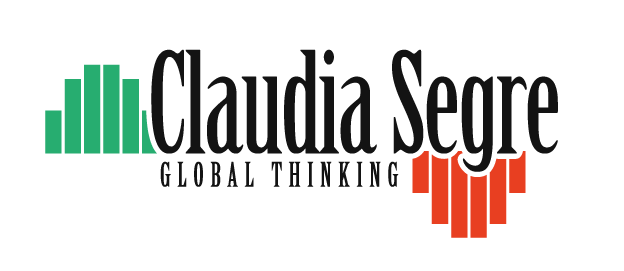“If I am not for me, who is for me? And, if I am only for myself, what am I? And if not now, when?”
(Talmud – Pirkei Avot – The maxims of the fathers)
After the G7 in Hiroshima, preparations are in full swing for the baton handover for the G7 2024 in Italy. Among the key topics of the proceedings, in addition to that of health care already illustrated, indeed, the world of work hinged on a model of society that is already a new cultural paradigm and that will emerge from this epochal social and economic transition phase of poly-crisis and post-globalisation.
And it is precisely the eminent professor Yuko Harayama who has been called upon by the Prime Minister to define a new economic and social development model by initiating the concept of Society and Enterprise 5.0. The former Enterprise 4.0, born in Germany, remains synonymous with the fourth industrial revolution based on the Internet of Things and real-time data communication for a ubiquitous factory, physical and virtual simultaneously. It is an outdated paradigm focused on enabling technologies, efficiency and productivity.
Society 5.0, on the other hand, is a paradigm focused on people and the environment, quality of life and sustainability, with the support of Industry 4.0 technologies, starting with a changed relationship between man and robot. This is a model of society that seeks to balance economic development with solving socio-environmental problems, where technologies are used not only for profit but to improve the quality of life of every citizen. The quality of life of each individual, respecting their gender, preferences, and all kinds of ‘diversity’.
An example of the application of the Model comes naturally from the agricultural sector. Japan has big cities like Tokyo, and in rural areas where agriculture is dominant, young people do not like to stay there; they are attracted to the big cities. Therefore, the average age of the population remaining in agriculture is very high, which is no longer sustainable. Thus, the way Japan runs the agricultural sector has been changed. The government’s Plan on Society 5.0 has seen initiatives and funding to digitise it and make it more attractive to young people, who can run it like a business using new digital tools such as weather data, crop growth data, market conditions, trends and food needs. Also, introducing the use of biotechnology. It is a matter of bringing together different challenges to make agricultural products available to consumers when they want them while respecting health and the environment and bringing young people back to repopulate the countryside and dominate the redemption of the primary sector. Added to this are cross-sectoral actions. If we look at the challenge of the elderly, which in fact sees Japan and Italy experiencing the same emergency over the management of Longevity, a mix of knowledge is clearly needed: medical knowledge, technological knowledge (e.g. for autonomous driving), etc., to revitalise the involvement of the over-60s in the work and social spheres.
Italy vs Japan: Challenge between Work and Longevity
Looking at Italy as photographed by EIGE data, European Index on Gender Equality, the work dimension sees it at the bottom of Europe. Therefore, confirming the results on a broader scale of the Global Gender Gap Report 2022, published by the World Economic Forum, in the economic participation and opportunities dimension, comparable to the work dimension proposed by EIGE, it follows that the genuine Italian social emergency concerns the participation and conditions of women in the world of work, and not only.
Women who, in Italy, find themselves in a commitment to the acquisition of skills that enable them to work in a complex job, profoundly changed by the advent of digital technology, amid gender gaps in skills: technical-scientific, digital and financial, and to the detriment of full social and work participation. The economic development of a country inevitably passes, as for companies, from putting gender equality and inclusion at the centre.
On the other hand, the definition of ‘female enterprise’ since 1992 has never been updated! And how can we define norms and initiatives in favour of women’s entrepreneurship if we cannot draw coherent and representative data of reality?
An enterprise, which can be our work destination, or our enterprise, as a result of setting up in motion an activity that immediately espouses values of the 5.0 society and is human-centred, sustainable and resilient, needs people increasingly capable of lateral thinking, creativity and critical thinking, anticipatory thinking and cognitive flexibility and empathy. Hence building the habitat for a human capital prepared to face the challenge that awaits us and whose lack creates a social emergency in the world of work and companies. This is an epochal transition for which life skills are central, and so to ensure that we can all be capable of this, an essential basis is the profound transformation of the education system and the entrepreneurial approach to the very concept of work.
Human Capital and Life Skills ‘for Life
We all know how valuable life skills are and how they contribute to our well-being and that of others:
- The ability to make decisions and solve problems;
- creative thinking and critical sense: i.e. the ability to independently and objectively re-elaborate situations and events; (a fundamental life skill for young people and for better combating and managing gambling and all forms of addiction, primarily digital habits);
- effective communication;
- the ability to relate to others to establish and maintain meaningful relationships positively and also to be able to break off relationships, if necessary, in a constructive and non-violent manner;
- knowledge of oneself, one’s abilities, strengths and weaknesses and needs;
- emotion and stress management, i.e. the ability to recognise the causes that can create tension and to be able to adapt to situations and changes.
And then empathy, i.e. the ability to ‘put oneself in the other person’s shoes, i.e. to listen without pre-judging, trying to understand the other person’s point of view.
And precisely because they are skills, hence competencies mean that we can learn and teach them. In fact, they are taught. And they know it well in Denmark. Since 1993, teaching empathy has been compulsory in schools, and all students aged 6 to 16 participate weekly in Klassens tid: the Hour of Empathy. And this is considered one of the factors contributing to the country’s happiness.
Empathy helps to build relationships, prevent bullying and succeed at work.
It promotes the growth of leaders, entrepreneurs and managers. It is no coincidence that Denmark ranks high in the quality of work throughout Europe.
In Anglo-Saxon countries, public speaking is a subject of curricular teaching. However, in many places, theatre is used to develop versatility and find tools to deal with different situations in life.
In short, school is – and can increasingly be – an ideal environment for teaching life skills because it plays a vital role in socialisation processes. At school, children and adolescents are trained to think critically, to know how to cooperate with others, to create and maintain good relationships, to set and recognise goals and to evaluate their own learning.
Where do we stand today in Italy?
At the beginning of this year, Law 2782/2022 was unanimously approved, first presented in the last months of 2020, which regulates the ‘Provision on the experimental teaching of emotional intelligence education in schools of all levels’. After years of unofficial experimentation and good practices entrusted to the diligence of individuals, life skills are finally entering the school curriculum as of right, not least to address the complex challenges of digital socialities, such as FOMO, the syndrome of feeling cut off from society.
The latter was included in the recent DDL Capital after years of discussion and proposals for legislation, despite Italy being at the bottom of the league in financial literacy among both adults and young people.
The point is that there should be a balance between life skills and economic and digital skills. We have to get out of the dichotomous paradigm: there is no dichotomy, on the one hand, emotions and feelings, ‘human touch’; on the other hand, technicalities and artificial intelligence. It is a very delicate and controversial issue, and in recent months, ChatGPT has reignited the debate on the potential of digital.
As before any transformative era, it will be the ability to be inspired by models such as the Japanese, who have already gone global, and from whom we will receive the baton of the G7 shortly, that can guide us into tomorrow.
A new cultural paradigm
This is also where the new paradigm is at play, that of Enterprise 5.0, which is, first and foremost, a cultural paradigm. Open, inclusive people, capable of imagining, intuiting, feeling and not just thinking. Empathic people can handle – feeling within life and act consistently with this. It is up to us, and each of us, to deal with this together: it is our shared responsibility. A human-centred, sustainable and resilient society is the one we will be able to build together.
There are many ways to live social responsibility, and many skills help.
On the importance of ‘working’ for oneself, one’s ‘life enterprise’. And to have the courage to start for oneself because one thing is sure, Human ‘capital’, i.e. that mix of abilities, personal characteristics, and talents, supported by a well-diversified and resilient portfolio of skills, constitutes the foundation and gears to make any Company project of today and the future work well.
We are the bearers of cultural change, and we must be so, and for this, we have to grow and evolve in an inclusive and sustainable context for the new generations. To take back a healthy world full of opportunities, a world that we build with our person, our strength, and not the imitation of a virtual model proposed by social networks that do not belong to us and does not evolve, and is weak because it is an end in itself, without perspective, sterile and non-productive of a forward-looking future for an increasingly 5.0 country.


